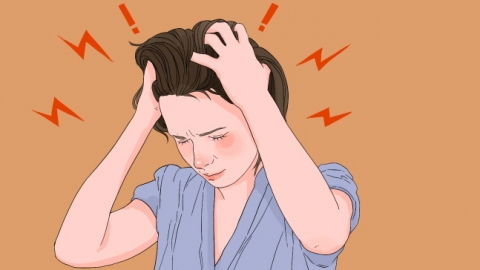Why do I experience nerve pain throughout the body during menopause?
Neuralgia during menopause may be caused by hormonal fluctuations, excessive emotional stress, post-herpetic neuralgia, osteoporosis, or diabetic peripheral neuropathy. Symptoms can be improved through emotional regulation, nutritional supplementation, and medication. If pain progressively worsens or is accompanied by numbness or weakness, prompt medical attention is necessary.
1. Hormonal fluctuations: A sharp decline in estrogen during menopause affects neurotransmitter secretion, increasing nerve sensitivity and causing episodic neuralgia throughout the body. It is recommended to maintain regular sleep patterns and consume soy products to supplement plant-based estrogens, thereby reducing triggers of pain.
2. Excessive emotional stress: Prolonged anxiety and depression can stimulate the nervous system, worsening neuralgia symptoms, possibly accompanied by poor sleep quality. Stress management through meditation and social activities is advised; psychological counseling should be sought when necessary to maintain emotional stability.

3. Post-herpetic neuralgia: The varicella-zoster virus lies dormant in nerve ganglia and may reactivate due to decreased immunity during menopause, damaging nerves and causing persistent pain. Painful areas often have a history of skin rash. Under medical guidance, medications such as gabapentin capsules, pregabalin capsules, and mecobalamin tablets may be used to alleviate symptoms.
4. Osteoporosis: Accelerated calcium loss during menopause leads to osteoporosis, causing bone deformities that compress surrounding nerves, resulting in neuralgia in the back, limbs, and extremities. Under medical supervision, drugs such as calcium carbonate D3 tablets, alendronate sodium tablets, and calcitriol soft capsules may be used to improve symptoms.
5. Diabetic peripheral neuropathy: If menopause coincides with diabetes, prolonged high blood sugar levels can damage peripheral nerves, leading to stabbing pain and numbness in hands and feet. Follow medical advice to use medications such as metformin hydrochloride sustained-release tablets, epalrestat tablets, and vitamin B12 tablets to manage symptoms.
Maintain a balanced diet rich in calcium and vitamins. Engage in gentle exercises like tai chi, keep warm to avoid cold exposure, and ensure sufficient sleep to help relieve discomfort from neuralgia.








